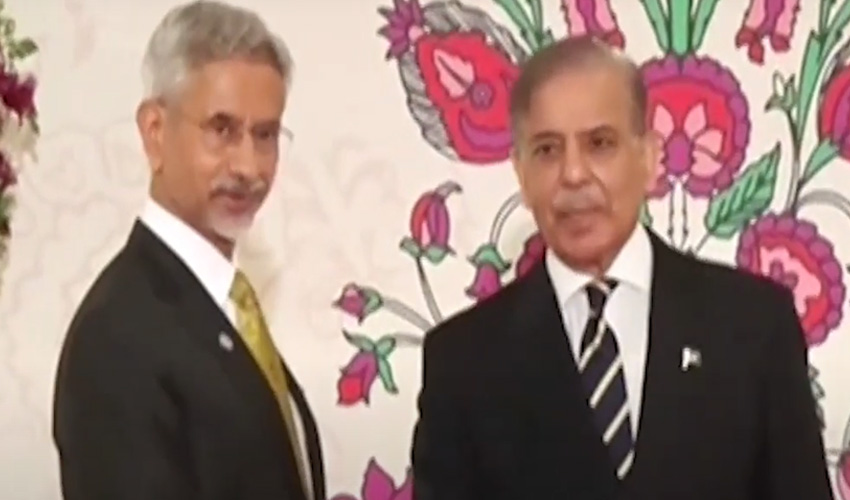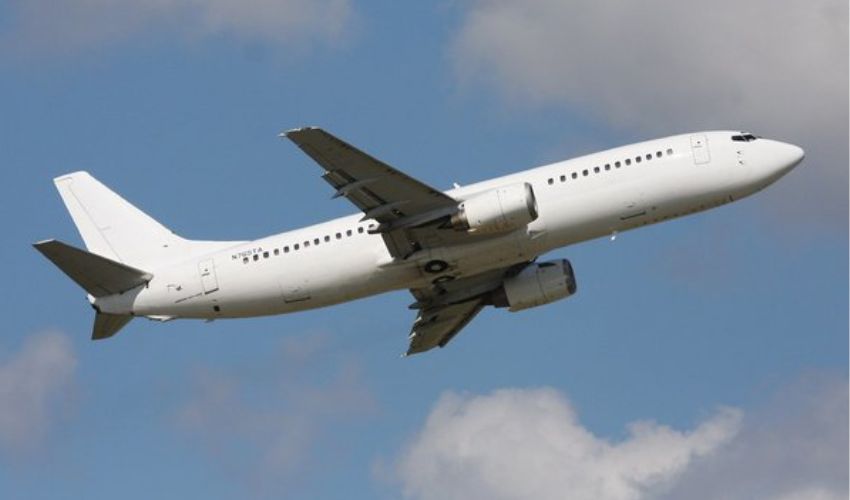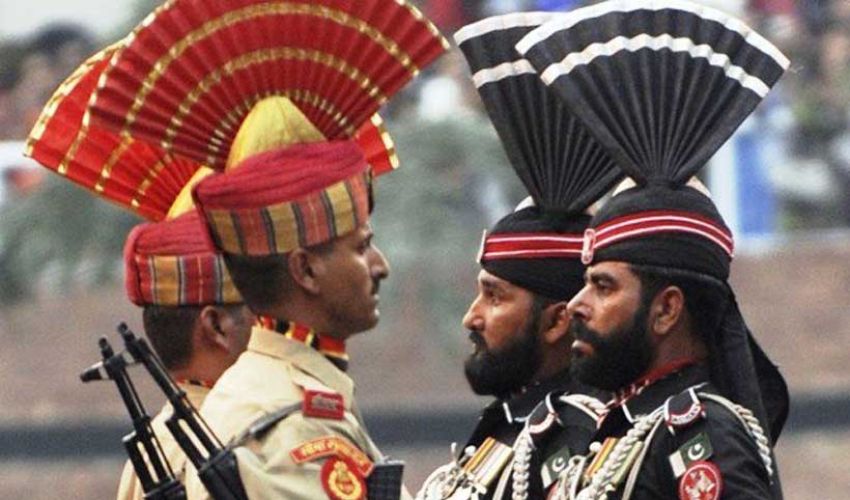The annual dinner ceremony hosted by Prime Minister Shehbaz Sharif in honour of the heads and delegates of member countries attending the Shanghai Cooperation Organization (SCO) summit commenced with notable significance on Monday evening.
Among the distinguished guests, China's Prime Minister Li Qiang was the first to arrive, setting the tone for a gathering aimed at fostering cooperation among member states.
Jaishankar-PM Shehbaz exchange handshake
Meanwhile, PM Sharif exchanged also a handshake with Indian Foreign Minister Subrahmanyam Jaishankar.
This rare interaction marked the first visit by an Indian foreign minister to Pakistan in nearly a decade, highlighting the ongoing complexities in diplomatic ties between the two nuclear-armed neighbours.
Both leaders greeted each other at the dinner, which is part of the broader SCO summit activities taking place in the capital.
Jaishankar’s arrival at Islamabad’s airbase shortly before 3:30 PM was ceremoniously accompanied by children presenting him with bouquets of flowers, underscoring the event's importance.
He is among a cohort of nearly a dozen leaders participating in the summit, which is scheduled to culminate in its main events on Wednesday.
Despite the diplomatic overture symbolized by the handshake, sources indicate that no formal bilateral meetings are on the agenda, reflecting the persistent frosty relations that have characterized interactions between India and Pakistan in recent years.
Security measures have been tightened across the capital to ensure the smooth conduct of the event, given the delicate geopolitical atmosphere.
The SCO summit, taking place from October 15 to 16, aims to bolster multilateral cooperation among member states, focusing on pressing issues such as counter-terrorism, economic collaboration, and climate change. This year's gathering in Islamabad marks the 25th meeting of the Heads of State of SCO member countries, a significant milestone for the organization founded in 2001 in Shanghai, China.
Objectives and structure of SCO
The Shanghai Cooperation Organization was originally established by China, Russia, Kazakhstan, Kyrgyzstan, Tajikistan, and Uzbekistan. As of 2024, its membership has expanded to include 10 full member countries, with the addition of India and Pakistan, as well as Iran and Belarus.
The SCO's main objectives include enhancing mutual trust and cooperation among member states and promoting regional stability through collective action against terrorism and extremism.
The organization's administrative structure features several key institutions, including the Heads of State Council (HSC) and the Heads of Government Council (HGC). The HSC serves as the supreme decision-making body, while the HGC focuses on economic cooperation, approving the organization's budget and initiatives.
Key issues on agenda
The summit's agenda encompasses critical topics aimed at addressing regional and global challenges:
-
Counter-terrorism: A primary focus will be on countering cross-border terrorism, with discussions on isolating nations that harbor terrorists and enhancing the Regional Anti-Terrorism Structure (RATS)
-
Economic cooperation: Economic initiatives, trade, and investment opportunities will be explored to strengthen inter-member economic ties
-
Climate change and environmental protection: The summit will also address the urgent need for environmental stewardship and collaborative efforts to combat climate change
-
Strengthening multilateral dialogue: The overarching theme of the summit—"Strengthening Multilateral Dialogue – Striving for Sustainable Peace and Prosperity"—reflects a commitment to fostering collaboration amidst rising global tensions and promoting a multipolar world order
The event in Islamabad has attracted a diverse array of leaders, including the Prime Ministers of China, Russia, Belarus, Kazakhstan, Kyrgyzstan, Tajikistan, and Uzbekistan.
Additionally, the first vice president of Iran and the Indian foreign minister are also in attendance, alongside special guests such as the foreign ministers of Turkmenistan and the Prime Minister of Mongolia, who is present as an observer.



























